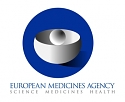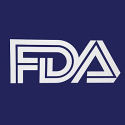The human health related rule makers in Europe, USA and Japan have addressed potential risk resulting from gadolinium retention following administration of gadolinium-based contrast agents used to enhance the diagnostic information value of MRI scans.
Background: While considered to be safe for a long time, recent studies have indicated that the administration of gadolinium-based contrast agents (GBCA) results in the retention of small amounts of gadolinium in the human body, including the brain. It seems also to be clear that so-called linear contrast agents show more pronounced retention than macrocyclic GBCAs. It is not clear, up to now, whether such retention has any health effects. Anyhow, regulating bodies in Europe, USA and Japan have reacted to address the potential risks.
Europe:

On November 16 the European Commission (EC) announced its decision to follow the recommendation of the European Medicines Agency (EMA) to restrict the use of certain gadolinium agents in MRI body scanners and suspending the authorizations of others. This decision was adopted following a meeting of the Standing Committee on Medicinal Products for Human Use held in Brussels on 14 November, but with one important amendment: European Union (EU) member states will have up to a year to implement the ruling, rather than the normal two months. Effectively, it means some countries will choose to take only two months to implement the EMA's Pharmacovigilance Risk Assessment Committee ruling in July 2017 to suspend gadodiamide (Omniscan, GE Healthcare), gadopentetic acid (Magnevist, Bayer) and gadoversetamide (Optimark, Guerbet), whereas other nations will take up to a year.
:

The U.S. Food and Drug Administration's (FDA) Medical Imaging Drugs Advisory Committee (MIDAC) voted overwhelmingly on Friday September 8 to recommend that the agency revise prescribing information for MRI gadolinium-based contrast agents (GBCAs) to include a warning about gadolinium retention in certain organs and tissue.
The warning would note that minute traces of gadolinium may occur in slightly greater amounts with linear GBCAs, compared with macrocyclic agents, and recommend ways to minimize gadolinium retention for certain patient populations that may be at greater risk.
:

Japan's Ministry of Health, Labour and Welfare is following suit with rule makers in the U.S. and Europe in demanding four producers of GBCAs for MRI scans to revise warning text on their product labelling information. The ministry's edict from November 28 mandates that the wording on GBCA packaging be changed to advise users on how previous studies have found "high signal intensity in the cerebellar dentate nucleus and globus pallidus on unenhanced T1-weighted MR images" and that gadolinium was "detected in autopsied brain tissue in patients who received a GBCA several times." The agency is also requiring the insert to state that the "necessity of MRI scan using gadolinium-based contrast agents should be determined carefully."
The requirements target linear GBCAs gadodiamide (Omniscan, GE Healthcare), gadopentetate dimeglumine (Magnevist, Bayer HealthCare), and gadoxetate (Eovist, Bayer HealthCare), as well as macrocyclic GBCAs gadobutrol (Gadovist, Bayer), gadoteridol (ProHance, Bracco Imaging), and gadoterate meglumine (Dotarem, Guerbet). In making its decision, the ministry followed Japan's Pharmaceuticals and Medical Devices Agency (PMDA), which issued a summary of its investigative results, citing 74 GBCA studies from around the world.
 Related information
Related information
 FDA: Information on Gadolinium-Based Contrast Agents
FDA: Information on Gadolinium-Based Contrast Agents EMA: Gadolinium-containing contrast agents
EMA: Gadolinium-containing contrast agents  PMDA (Nov. 11, 2017): Report on the Investigation Results
PMDA (Nov. 11, 2017): Report on the Investigation Results PMDA (Nov. 28, 2017): Revisions of PRECAUTIONS (FY2017)
PMDA (Nov. 28, 2017): Revisions of PRECAUTIONS (FY2017) Related EVISA News
Related EVISA News
 September 15, 2017: FDA panel calls for warning labels on gadolinium-based contrast agents for MRI
September 15, 2017: FDA panel calls for warning labels on gadolinium-based contrast agents for MRI July 29, 2017: EMA Issues Final Opinion Limiting Gadolinium Contrast Agents in Body Scans
July 29, 2017: EMA Issues Final Opinion Limiting Gadolinium Contrast Agents in Body Scans
 May 23, 2017: FDA identifies no harmful effects to date with brain retention of gadolinium-based contrast agents for MRIs
May 23, 2017: FDA identifies no harmful effects to date with brain retention of gadolinium-based contrast agents for MRIs March 11, 2017: European Medicines Agency recommends to pull linear Gadolinium-based MRI contrast agents from market
March 11, 2017: European Medicines Agency recommends to pull linear Gadolinium-based MRI contrast agents from market
 April 10, 2016: New Studies Question Safety of MRI Contrast Agents
April 10, 2016: New Studies Question Safety of MRI Contrast Agents
 August 13, 2015: FDA investigating risk of gadolinium contrast agent brain deposits
August 13, 2015: FDA investigating risk of gadolinium contrast agent brain deposits
 March 4, 2015: Detection of Gd-based contrast agent in the skin of a patient eight years after administration
March 4, 2015: Detection of Gd-based contrast agent in the skin of a patient eight years after administration
 October 29, 2012: Identification and quantification of potential metabolites of Gd-based contrast agents
October 29, 2012: Identification and quantification of potential metabolites of Gd-based contrast agents
 September 15, 2010: US FDA Announces Gadolinium-Based MRI Contrast Agent Warning
September 15, 2010: US FDA Announces Gadolinium-Based MRI Contrast Agent Warning
 March 25, 2010: Publication on the separation of Gd-based contrast agents awarded
March 25, 2010: Publication on the separation of Gd-based contrast agents awarded
 May 4, 2009: Gadolinium speciation analysis in search for the cause of nephrogenic systemic fibrosis (NSF)
May 4, 2009: Gadolinium speciation analysis in search for the cause of nephrogenic systemic fibrosis (NSF)
last time modified: September 22, 2024